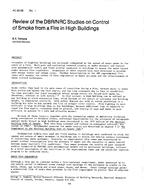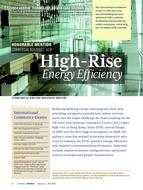Flexible duct air distribution systems are used in a large percentage of residential and small commercial buildings in the United States. Very little empirical or predictive data are available though to help provide HVAC design engineers with reliable information. The aim of this research was to measure experimentally, in compliance with the guidelines of ANSI/ASHRAE Standard 120-2008, the friction loss of the air flow inside a realistic flexible duct layout used for residential and small commercial buildings. This paper demonstrates that the friction loss in these type of ducts is not only a function of its diameter and flow rate but also a function of its installation condition, i.e., the degree of shrinkage. Hence, except for a fully stretched duct, friction loss is significantly larger than that in smooth sheet metal ducts with the same diameter and flow rate. As a consequence, flexible ducting systems require larger fans and consume more fan power, which in turn yields higher operation and maintenance costs. A nondimensional factor, known as the percentage of shrinkage, was used in this study to determine the empirical correlations that could help design engineers correct the friction loss predicted by the widely used Air Friction Charts for these ducts. This way, design engineers would be able to accurately estimate the real pressure loss and fan power in a flexible ducting system. Graphs of friction loss in straight ducting for a range of flow rate common to residential and small commercial buildings were demonstrated for flexible ducts that are 6-in, 8 in and 10 in (150 mm, 200 mm and 250 mm) in diameter with various percentages of shrinkage. Log-log plots of the flow rate vs. friction loss demonstrate that for the more realistic installation cases in extreme cases, the friction loss could be five or six times greater than that of a straight duct having 0.0% shrinkage. This is thought to be due to the deformation in the cross-section that results from the duct sagging over its length between adjacent supports.
Citation: 2017 Winter Conference, Las Vegas, NV, Conference Papers
Product Details
- Published:
- 2017
- Number of Pages:
- 6
- Units of Measure:
- Dual
- File Size:
- 1 file , 830 KB
- Product Code(s):
- D-LV-17-C060


